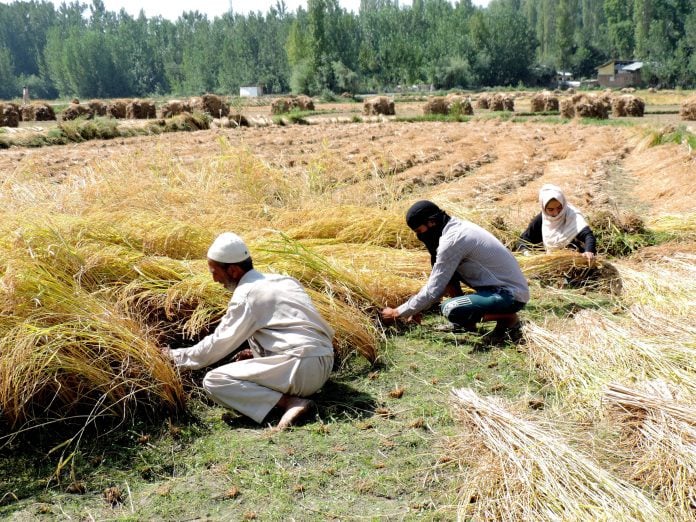New Delhi (ILNS): A petition has been filed in the Supreme Court against the enforcement of three new farm bills that received the Presidential assent on September 27.
The petition has been filed by Bhartiya Kisan Party against the Farmers (Empowerment and Protection) Agreement on Price Assurance and Farm Services Act, 2020, the Farmers’ Produce Trade and Commerce (Promotion and Facilitation) Act, 2020, and The Essential Commodities (Amendment) Act, 2020. The petitioner has contended that the acts are in violation of the Constitution.
The petition has been filed through Advocate Sanjeev Malhotra and drawn by Advocate KKL Gautam.
The petitioner has submitted that since agriculture is a subject under the exclusive jurisdiction of the state, Parliament lacks the power to make laws on it.
The petitioner has also submitted: “A State Legislature has exclusive power to legislate with respect to matters in List II, excluding the matters falling in List I and has also concurrent power to legislate with respect to matters falling in List III excluding the matters falling in List I. The dominant position of the Central Legislature with regard to matters in List I and List II is established.”
Further bringing the courts attention to the doctrine of repugnancy and the doctrine of pith and substance, the petitioner has submitted: “The concept of repugnancy arises only with regard to laws dealing with subjects covered by the entries falling in List III in respect of which both Parliament and State Legislature are competent to legislate. Under Article 254 of the Constitution, a State law passed in respect of a subject matter comprised in List III would be invalid if its provisions were repugnant to a law passed on the same subject by Parliament. The repugnancy arose only if both the laws could not exist together. Repugnancy does not arise simply because Parliament and the States pass a law on the same subject.”
Referring to the case of I.T.C. Ltd. Etc vs State of Karnataka & Ors of 1985, the petitioner has stated that Parliament cannot legislate on a state subject and the state cannot legislate on a central subject. If either encroaches upon the field of the other, the law will be ultra vires.
The petitioner has thus prayed that the three acts are vulnerable and ought to be struck down as it merely negates a binding judgment of this Hon’ble Court.
Further, the petitioner has submitted that in matters of these kinds the Court cannot remain as a mere spectator and the Court is not expected to adopt a passive or negative role and remain a bystander or a spectator if a violation of the basic structure of the constitution is observed.
Final-Writ-Petition-in-pdf-dtd-03.10.2020-1–India Legal Bureau


